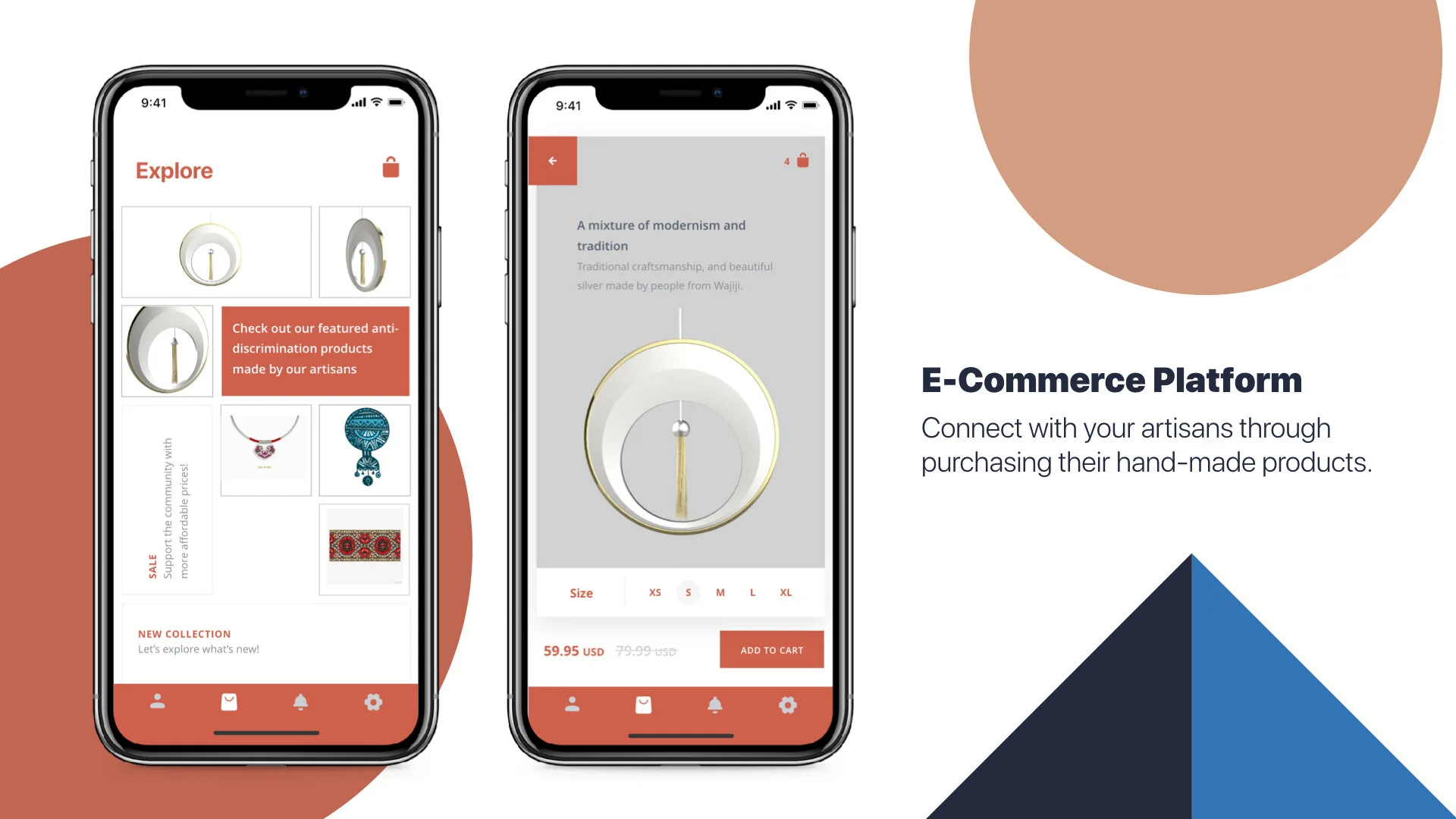Lempup Handmade: Supporting China's Leprosy Villagers
Lempup Handmade is a service platform that aims to provide a self-sustainable economy for quarantined residents of China's leprosy villages. Designed by first-year student Wen Xie, the project is also intended as an anti-discrimination campaign.
Isolated and stigmatized, many residents living in these remote villages are skilled Miao/Yi craftspeople specializing in traditional silverwork, handmade embroidery, and dyed textiles. Wen created an app that would help the villagers share their craftwork—as well as their personal experiences—with the outside world.
Wen’s research showed what many people still don't understand: that leprosy is curable, and that 95% of people have a natural immunity to the disease.
As an undergraduate student, Wen volunteered with the Rotary Club of Chengdu, helping people confined to leprosy villages. He learned that many residents were elderly, disabled, and burdened by poverty and lingering discrimination. According to his research, there were still 657 leprosy villages in China as of 2012. Wen's interviews with subject matter experts revealed the complicated problem of discrimination attached to the disease. As Catherine Liu, a Leprosy Project volunteer, told him, "The stigma attached to leprosy is even scarier than the disease itself. A kid told me his teacher doesn't want to touch his notebook because he is from one of the leprosy villages."
Wen’s research showed what many people still don't understand: that leprosy is curable, and that 95% of people have a natural immunity to the disease. He saw an enormous opportunity to educate the public about leprosy as well as to give back to these marginalized communities. Wen also emphasized the importance of sharing the residents’ stories that are not often heard. "I wanted to find a way to link the villagers with the outside world and to support the idea that they are the same as us. There is absolutely no reason for people to be afraid.”
To make the products even more appealing to contemporary customers, Wen redesigned the Miao crafts, combining traditional aesthetics with modern minimalism. One example is a piece of fine silver jewelry called Choj, which in the old Miao language, means "bridge."
The branding and visual identity of Lempup Handmade have also been carefully considered: The colors featured in the packaging design are the same ones found in Miao/Yi traditional clothing. When the recipient opens the box, they will find a colorful card that indicates which craftsperson made the product. “The instructions make it easy to thank them directly,” Wen offers, “one needs only to scan the QR code to connect to the app.”







